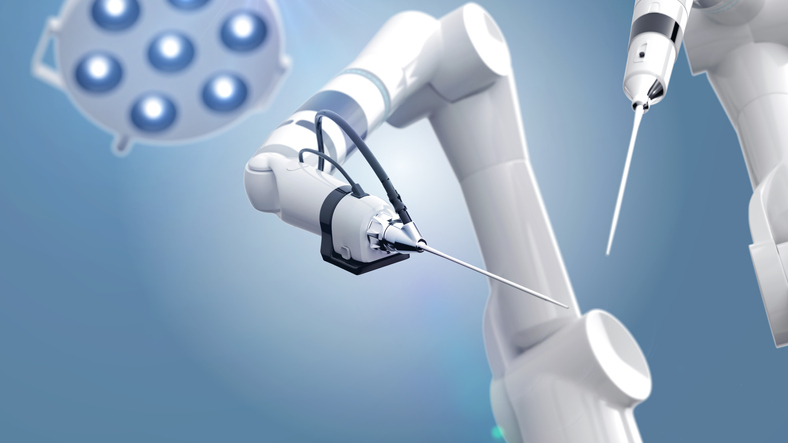What is Robotic Surgery?
Robotic surgery is a relatively new technology in which advanced laparoscopic manipulators are controlled remotely by a surgeon. In other words, robotic surgery is laparoscopic surgery (any surgery using a laparoscope and performed via small incisions) in which instruments are inserted in the body and where a surgeon is positioned away from the patient on a console from which he or she controls the instruments that are attached to the robot.
Is robotic surgery a new type of surgery?
No. The actual surgical technique remains the same. Robotic surgery is merely a new instrument used to perform current procedures.
Does the robot actually perform the surgery?
No. The robot always follows commands from the surgeon. The robot never performs any surgery autonomously.
How did robotic surgery start?
Robotic surgery was initially developed for military applications. The surgeon who controls the robot from a remote location can operate on a wounded soldier who is on the battlefield thousands of miles away. It is a similar principle to military drones, which are controlled by operators halfway across the globe.
Who makes the surgical robot?
The most common surgical robot is made by Intuitive Surgical, located in Sunnyvale, CA.

Do patients have less pain when robotic surgery is used?
No. Current studies demonstrate no difference in pain when compared to “non-robotic” laparoscopic techniques.
What are the advantages of using a robot in surgery?
The main advantages are:
- Improved vision which allows a better view of a surgical field
- Precision handling of small structures
- Better precision in tight spaces such as the pelvic cavity
What are the risks and side effects of using a robot during surgery?
The surgical robot does not allow a surgeon to have a tactile feel of the tissues, which can lead to inadvertent injuries to delicate organs. Robotic surgeries tend to have longer operative times, therefore requiring longer anesthesia. In rare cases, a robot can malfunction during surgery.
Is robotic surgery better than laparoscopic surgery performed without a robot?
It depends on the specific procedure being performed. For some procedures, robotic surgery presents an advantage over a non-robotic approach, for others it either makes no difference or may even present a disadvantage.
Are there doctors who specialize in robotic surgery?
There is no separate specialty of Robotic Surgery. Robotic technology is used by surgeons in many specialties such as urology, gynecology, thoracic, oncology, as well as in bariatric and general surgery. Robotic surgery is a technique, not a specialty.
Can patients request a robot to be used in their surgery?
Patients are important decision-makers when it comes to their health. Choosing the right treatment is a team effort between patients and physicians. Although detailed technical aspects of surgery should be discussed between patients and surgeons, the expertise and judgment of the surgeon should be the deciding factor on whether a robotic approach is preferred in each particular case. Ultimately, it is the physician’s responsibility to choose the most effective and safe option for each individual patient. Additionally, it is very important to feel comfortable with your surgeon’s decision-making process and the options provided.
Vadim Gritsus, M.D. is a recognized expert in Bariatric Surgery, Laparoscopic and Minimally invasive surgery as well as Surgical Endoscopy and is certified to use the DaVinci Robotic Surgical System.
Schedule a consultation today! Dr. Gritsus and his staff are available and happy to answer your every question. We’d love to help you get all the information you need to in order to make the best choice.
Schedule a Consultation Today
Call today to schedule a private consultation in New Jersey

